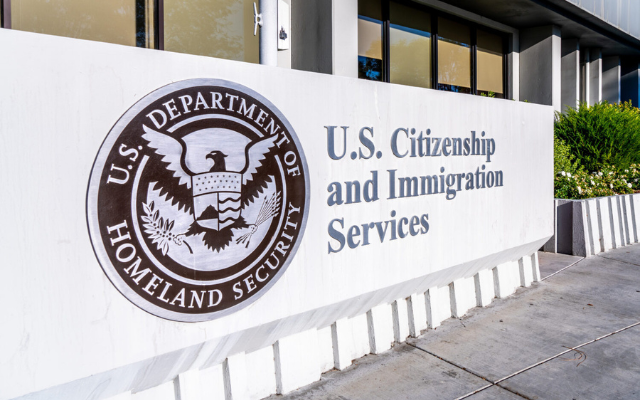By Laura Bloniarz, Senior Associate, WR Immigration
For the past two years, U.S. Citizenship and Immigration Services “USCIS” has issued a record number of employment-based green cards. What does the remainder of the government’s fiscal year hold for green card processing?
On January 18th, WR Immigration is hosting a discussion to answer this question in detail, provide updated predictions, and analyze trends. Register Here
Most commonly, the employment-based green card process starts with a company sponsoring a foreign national employee by filing a labor certification application (test of the U.S. labor market) and once the labor certification application is approved, the company then files an Immigrant Petition for Alien Worker (Immigrant Petition). In some cases, if the offered position and foreign national both qualify, the company may skip the labor certification application step and immediately file an Immigrant Petition on behalf of the foreign national. Because the yearly number of sponsored foreign national employees from some countries continue to exceed the number of available green cards each year, there is a wait for some employment-based preference categories.
It is important to note that an approved Immigrant Petition from a valid employer-based green card sponsorship does not mean that the sponsored foreign national employee is granted a green card. Rather, the approved Immigrant Petition means that USCIS has confirmed the sponsored foreign national employee has a valid employment relationship with the sponsoring company and that the sponsored foreign national employee has established their place in line to eventually apply for the green card. The sponsored foreign national employee receives a priority date when the company reaches certain filing milestones in their green card sponsorship process. The priority date serves as the sponsored foreign national’s specific place in line to obtain the green card.
The United States limits the number of employment-based immigrant visas issued each year. The Immigration and Nationality Act “INA” is the law that sets the number of immigrant visas (green cards) issued under preference category and country on a yearly basis. The U.S. Department of State, through its Immigrant Control and Report Division, administers these annual numerical limitations on immigrant visas by publishing a monthly Visa Bulletin which summarizes the availability of immigrant visa numbers for each preference category and country. The Visa Bulletin confirms when a sponsored foreign national is eligible to claim their immigrant visa by publishing the priority dates for each preference category and country.
A sponsored foreign national employee reaches the front of the green card line when their priority date becomes current under the Visa Bulletin and claims their immigrant visa by applying for the green card through the Adjustment of Status application filed with USCIS.
The U.S. Department of State estimates 197,000 employment-based worldwide immigrant visas available this fiscal year1. This is a substantial decrease in the availability of employment-based worldwide immigrant visas from FY2022 (281,507) and FY2021 (262,288). Recognizing the reduced availability of employment-based immigrant visas only three months into the government’s fiscal year, the U.S. Department of State implemented priority dates for EB-2 “all chargeability2.” EB-2 “all chargeability” historically remains current for filing and final action throughout the fiscal year. This is another signal from the government that there will be a slow down on green card processing ahead.
With all signs pointing to slowed green card processing: what does that mean for companies sponsoring foreign nationals?
Increased costs. Companies sponsoring foreign national employees for a green card can expect a longer wait for these employees to obtain their green card. And a longer wait means companies will file increased numbers of renewals per sponsored foreign national employee to maintain the foreign national employee’s underlying work authorization status. Unfortunately, these renewals will also be coming with a higher price tag. USCIS recently proposed a rule3 to increase filing fees for most employment-based immigration applications.
For example, under the proposed rule filing fees for H-1B Extension Petitions would increase from $460 to $780. Further, the proposed rule would require companies to pay an additional $600 Asylum Program Fee4. Companies with generous green card sponsorship policies that support both nonimmigrant visa petition extensions and Employment Authorization Document “EAD” renewals while the foreign national employees’ Adjustment of Status Applications (Form I-485) are pending will also see increases for EAD renewals.
Under the proposed rule, companies will find some relief by adopting online filing practices with their immigration counsel. While still an increase, filing fees for online EAD applications would be lower than paper-based applications. USCIS proposes a new filing fee of $555 (currently $410) for the EAD applications filed online and $650 for paper-based EAD applications.
Companies should work closely with immigration counsel to review green card application forecasts for the year to prompt timing and budgeting discussions with relevant stakeholders. The green card application processing delays will change not only timeline expectations for sponsored foreign national employees, but also significantly impact budget projections for their managers, cost centers, etc.
In partnership with immigration counsel, companies will also want to plan for timely extensions of their sponsored foreign national employees’ nonimmigrant statuses. Finally, to limit increasing green card sponsorship cost, companies may want to consider whether they will continue to support EAD renewal applications while the green card applications are pending with USCIS.
Footnotes
- https://travel.state.gov/content/travel/en/legal/visa-law0/visa-bulletin/2023/visa-bulletin-for-december-2022.html.
- This means that a foreign national (born in a country that is NOT China, El Salvador, Guatemala, Honduras, India, Mexico, or Philippines) that has been sponsored for a green card by Company with an approved I-140 Immigrant Petition in the EB-2 preference category must have an eligible priority date to file the Adjustment of Status Application (Form I-485).
- https://www.uscis.gov/newsroom/news-releases/uscis-issues-proposed-rule-to-adjust-certain-immigration-and-naturalization-fees.
- The legality of this proposed fee for one benefit to fund another is dubious. It is likely that if implemented, will be challenged.


